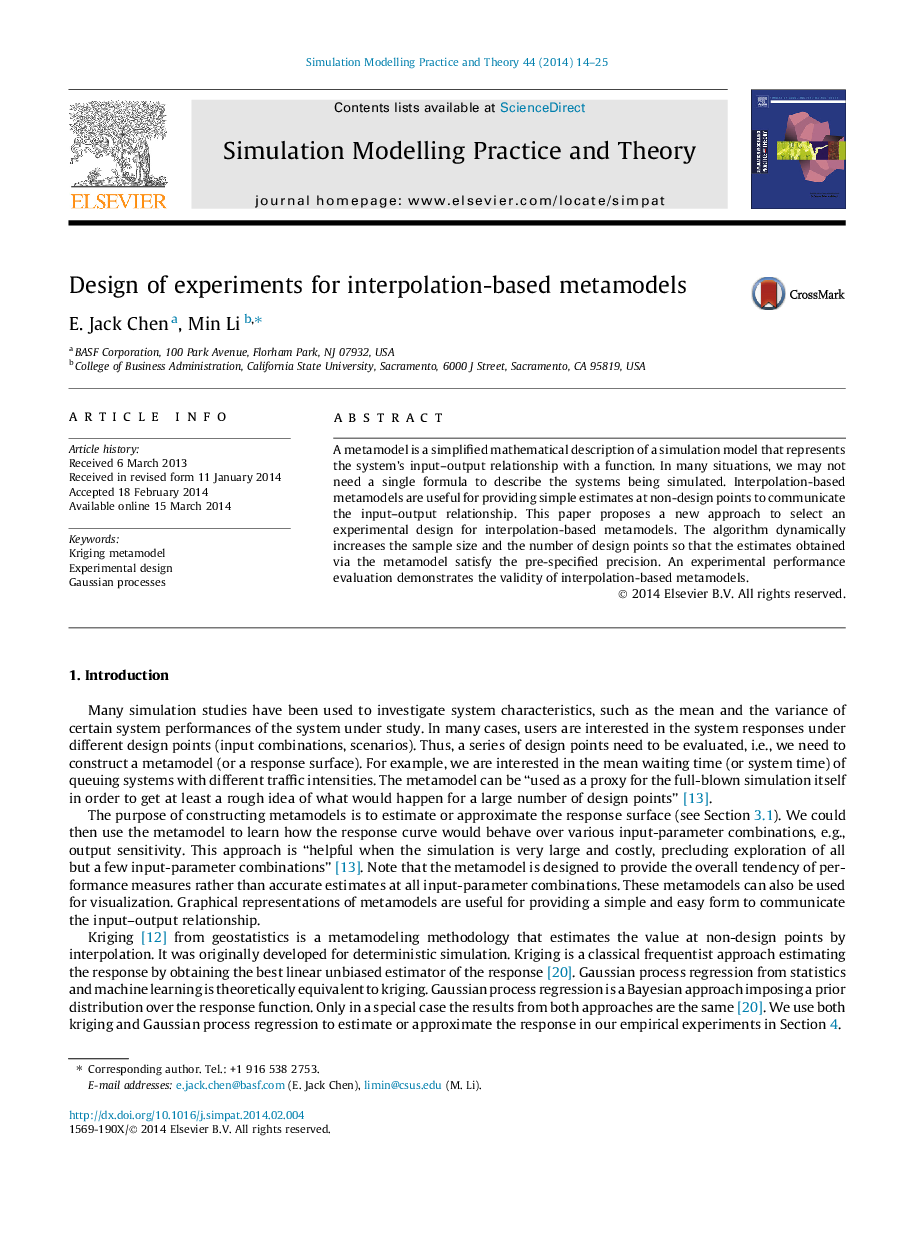| کد مقاله | کد نشریه | سال انتشار | مقاله انگلیسی | نسخه تمام متن |
|---|---|---|---|---|
| 492178 | 721148 | 2014 | 12 صفحه PDF | دانلود رایگان |

• We propose a design of experiment for building interpolation-based metamodels.
• Determine the required number of design points and the placement of those design points.
• Determine the required simulation run length to obtain estimates at the design points.
• Compare the performance and traits of three approaches of building interpolation-based metamodels.
A metamodel is a simplified mathematical description of a simulation model that represents the system’s input–output relationship with a function. In many situations, we may not need a single formula to describe the systems being simulated. Interpolation-based metamodels are useful for providing simple estimates at non-design points to communicate the input–output relationship. This paper proposes a new approach to select an experimental design for interpolation-based metamodels. The algorithm dynamically increases the sample size and the number of design points so that the estimates obtained via the metamodel satisfy the pre-specified precision. An experimental performance evaluation demonstrates the validity of interpolation-based metamodels.
Journal: Simulation Modelling Practice and Theory - Volume 44, May 2014, Pages 14–25